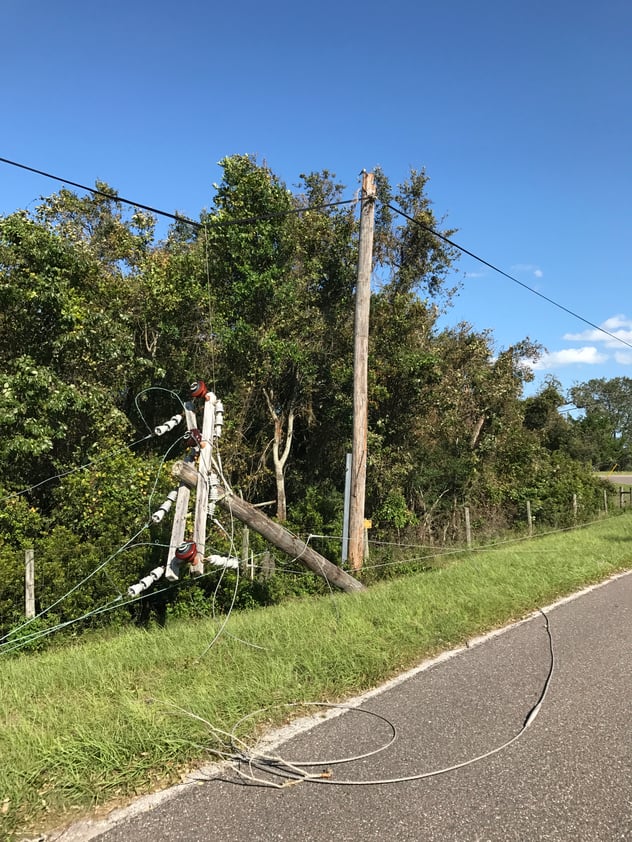
Florida just was hit by Hurricane Irma causing the single largest power outage and recovery of its kind in the history of the United States. We are accustomed to having electricity without interruption 24/7 in our country. In this blog, I want to give a basic understanding of why our power goes out whether because of a small thing or a major disaster like a hurricane.
1) Think About Your Own Home’s Electric System
All of our homes have an electrical power system. You have a circuit breaker box where the power comes into your home. The circuits are how the electricity is then sent throughout your home to power different things. You will have separate circuits to run your bigger appliances like air conditioners, clothes dryers, and water heaters. You may have several circuits to bring electricity to the receptacles and lighting. Have you ever had something happen in your home that caused a circuit breaker to trip? This is a safety factor to prevent a fire or some other problem. When something goes wrong on one circuit, like too many things plugged in or a wire came loose, the breaker trips, stopping the flow of electricity until you resolve the problem. You may have receptacles that stop working in one part of your home while another area is still working. That means the receptacles are on two separate circuits.
2) Imagine The Community’s Electrical System Is Similar To Your Home’s System
The place the electricity is generated is similar to where the power enters your home. Only, in this case, the power is feeding an entire community. There are large, high voltage, power lines that distribute the electricity to your community called transmission lines. If one of these is damaged, say by a falling tree the entire community will lose electricity. The electricity goes from these main transmission lines to substations. These substations reduce the voltage so it can be distributed locally through smaller wires. The electricity is then distributed through power lines into your neighborhoods where the voltage is reduced further through a transformer.
Now the electricity is ready to travel through an individual feeder or service line to your home or business. All along the route, there are circuit breakers and fuses. They work just like your home’s circuit breakers. If anything goes wrong on the circuit, the breaker trips or the fuse will blow cutting off the power. This is for your safety and protection. It is important to know; there needs to be a solid path for the electricity to travel all the way from the generation plant to your location. Anything that happens on the path to cause a circuit breaker to trip or a fuse to blow or any other interruption means your location will temporarily lose power.
3) Accessing Damage and Restoring Your Service
In small situations, something nearby and simple may have caused a power disruption. A tree branch coming in contact with the line, a car hitting a pole or numerous other things. In major issues like a hurricane, the problem could be anywhere in the system. Any damage from the generation plant all the way to your location, which could be a hundred miles or more, could be the cause. Crews both study the control system data and travel through the outage area looking the damages. It may take multiple repairs on the pathway until power is finally restored to you at the end of the line.
The entire community’s electric distribution system is many, many circuits. One circuit may be restored which feeds your neighbors, while you may be on a different circuit which has not been repaired yet. Downed trees are often the main culprit in major storms as well as lightning strikes. Electric lines can be damaged, broken or tangled in fallen trees, which will also cause circuit breakers or fuses to trip. Therefore the trees must be cleared before the lineman can repair or replace the power lines. All this can be a massive undertaking.
Florida Public Utilities is committed to providing safe, reliable electric service to the communities we serve and restoring power as quickly and safely as possible when something big or small causes a disruption to your service. For additional safety and storm-related content, visit www.FPUC.com/HurricaneSafety

